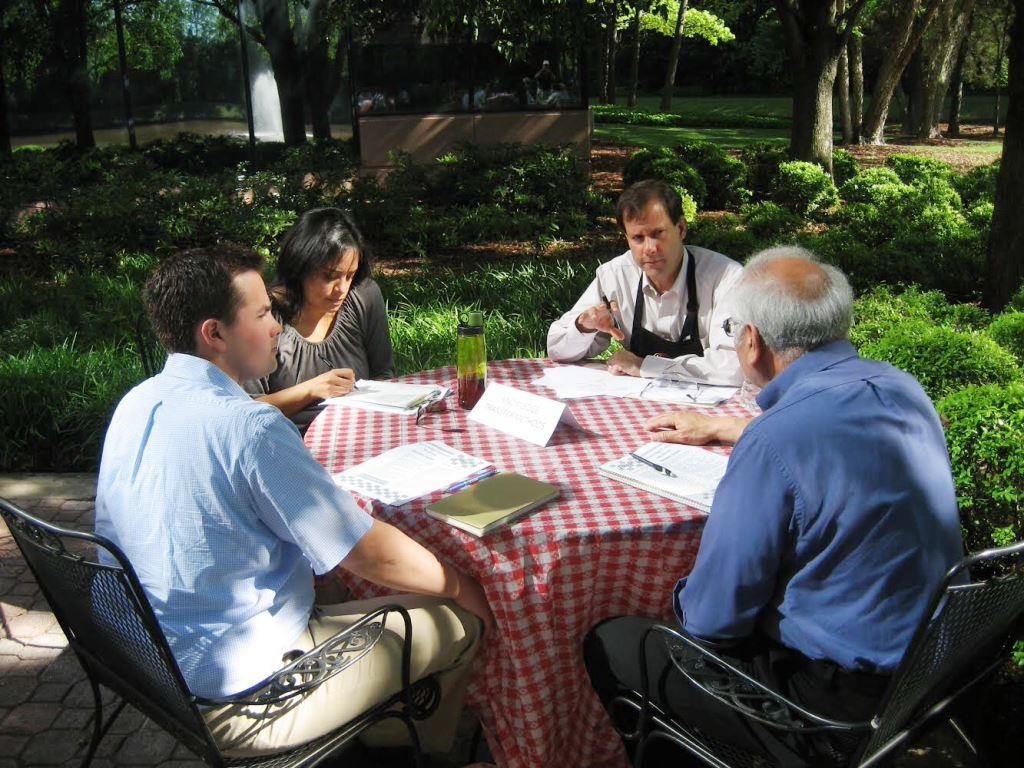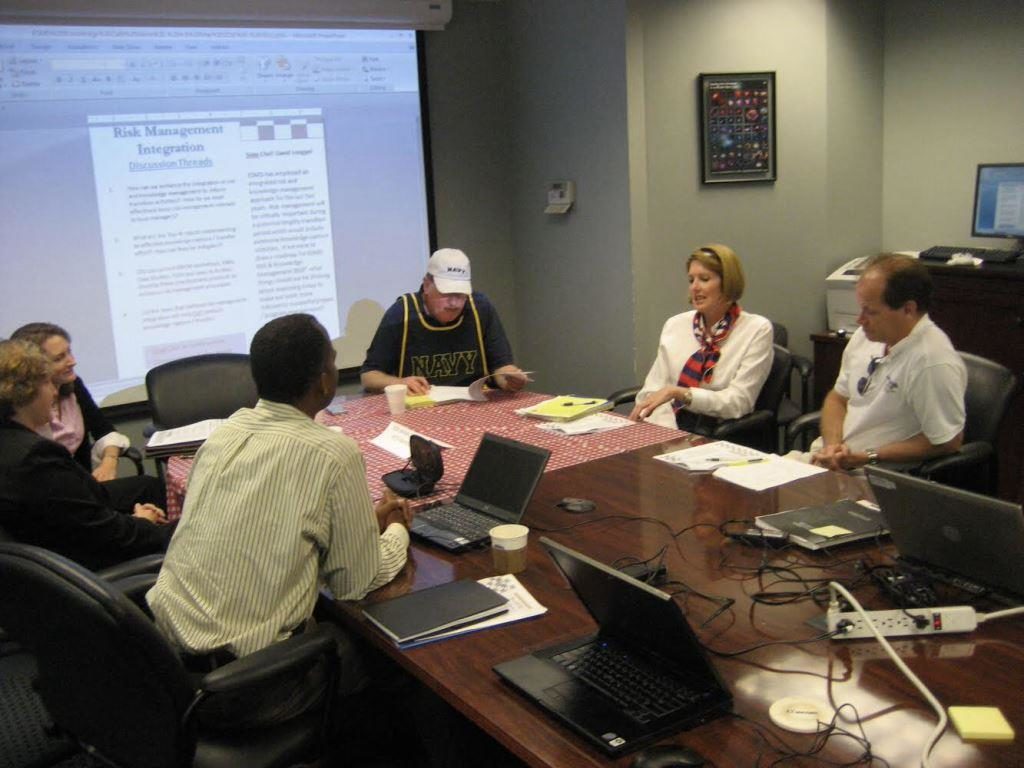You can adapt the Knowledge Café process in a variety of ways and put the Café to a multiplicity of different purposes. This series of Knowledge Cafés ran by NASA was used to identify risk issues and how to mitigate those risks.
The Knowledge Café process was modified so that each Café addressed six separate topics and structured and unstructured brainstorming techniques were used to capture participants’ inputs.
NASA made these changes without losing the essence of the Café.
David Lengyel who was the Risk and Knowledge Management Officer for the Exploration Systems Mission Directorate at NASA at the time tells the story.
The National Aeronautics and Space Administration (NASA) established the Exploration Systems Mission Directorate (ESMD) in the 2004 timeframe to manage a new portfolio of programs and projects aimed at lunar return.
To ensure an effective transfer of knowledge from NASA legacy programs, such as Apollo, International Space Station, and Space Shuttle, we took an integrated approach towards managing risk and knowledge.
Two important and novel aspects of ESMD’s integrated risk and Knowledge Management (IRKM) approach were to dual-hat risk managers and knowledge managers and to use risk records to identify knowledge gaps in support of the creation and transfer of both tacit and explicit knowledge.
The goals of this framework were to facilitate risk-informed decision-making, to promote learning from past programs, and to capture and share knowledge of current risk issues across the directorate.

The ESMD IRKM framework, initiated in 2005, took almost two years to mature. The framework was first and foremost a risk management system. As one former risk manager recalled, “IRKM was a powerful validation of the need to couple KM with a critical core business process that spanned the entire organization.”
In the 2007 timeframe, we decided to pilot David Gurteen’s Knowledge Café process. Our first Café was at the Johnson Space Center in Houston, Texas (see the photo above).
It was a smashing success, and we continued to both conduct and promote their use across the directorate. The Knowledge Cafés proved to be an effective technique to socialize ideas across a large group to create buy-in to move forward with those ideas.
A key feature of our Café technique was discussions that identified risk issues, and meaningful mitigation approaches.
What we learned from their implementation included:
- Engaged all participants in contributing ideas through discussion
- Accomplished social networking
- Developed teamwork
- Surfaced collective knowledge of a group
- Was a welcome departure from PowerPoint presentations
- Led to tangible outcomes in the form of better decisions
- Synthesized a list of ideas for each topic area
- Led to a deeper understanding of others’ views on ideas/issues/problems
- Created a well-socialized and synthesized path forward for making decisions
Our implementation included careful preparation of the Café agenda (menu), which generally included six topics.
We developed a narrative and a set of questions for each item. Facilitators (sous chefs) were encouraged to use structured and unstructured brainstorming to capture participant’s inputs.
On the final day of the Café, each facilitator provided a synthesized out-brief to the entire group.
This out-brief provided a final opportunity to get to the “big brain” of the participants as we captured additional inputs and “I forgots.”
We kept the atmosphere lively with chef hats, aprons, tablecloths, bumper music between sessions but the topics were very serious and the inputs very thoughtful.
All in all, they were an essential element of our integrated risk and Knowledge Management approach.
David M. Lengyel
David retired from NASA in January 2014 after 21 years at the agency. From 2005 to 2014 he served as the Risk and Knowledge Management Officer for the Exploration Systems Mission Directorate and then the Human Exploration and Operations Mission Directorate.

How do you think you could adapt the Café to address specific issues in your organization?
Tweet This
Resources
- Blog Post: Leveraging Collective Knowledge: NASA’s Constellation Program
- Journal of Applied Knowledge Management: Integrating risk and knowledge management in human spaceflight programs
POST NAVIGATION
CHAPTER NAVIGATION
SEARCH
Blook SearchGoogle Web Search
Photo Credits: David Lengyel (CC BY 4.0)
The Gurteen Knowledge Letter is a free monthly newsletter with over 20,000 subscribers that I have been publishing by email for over 20 years.
Learn more about the newsletter and register here.

